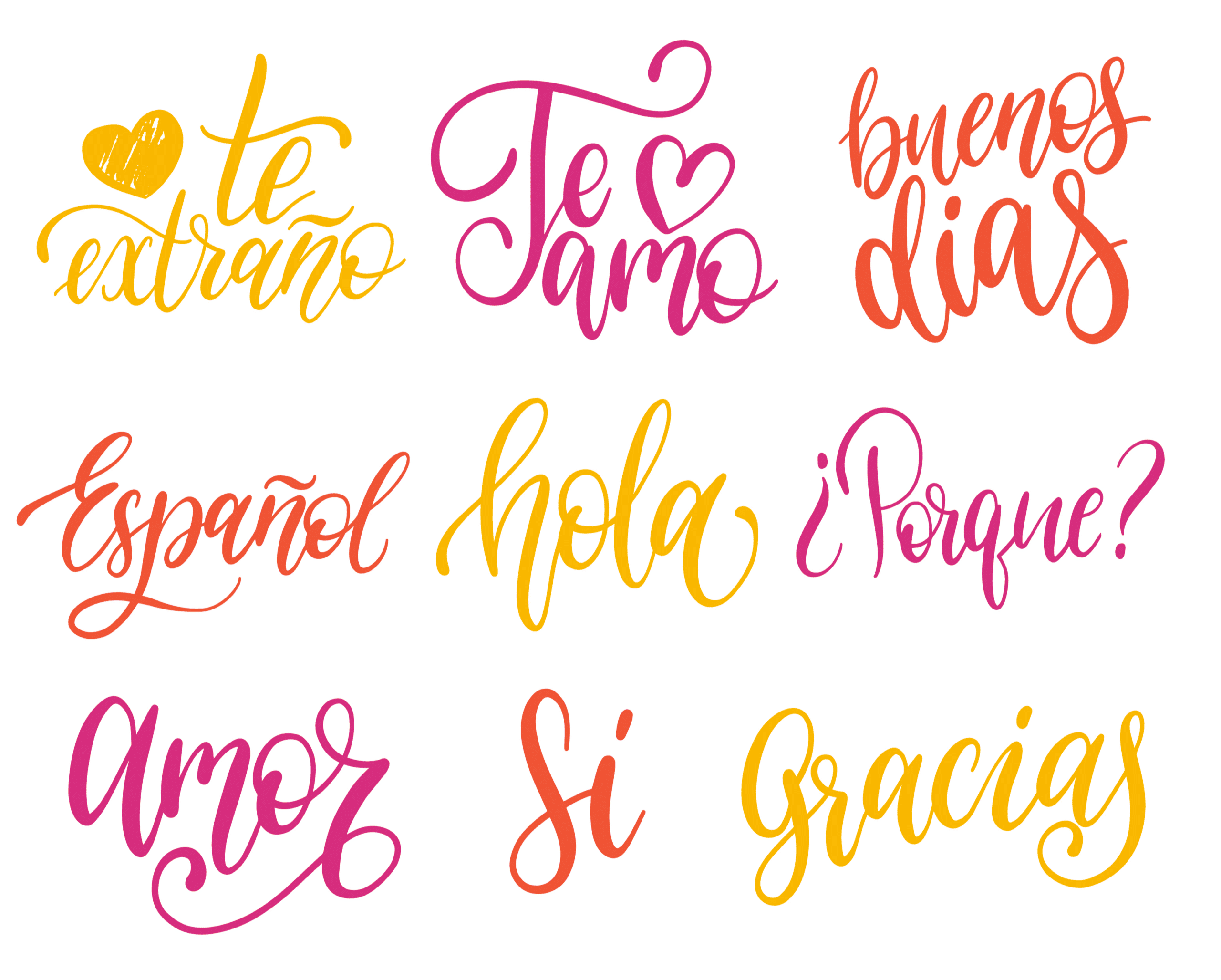Do you want to start learning (and using) Spanish today? If so, you’ve come to the right place. TruFluency is here to help you begin your Spanish journey in small, accessible ways.
A great way to practice any language is warming up your voice, focusing on a few useful vocab words, and paying attention to pronunciation. This post will start you off with a few useful vocal warmups, and then provide ten easy Spanish words and phrases that you can master today!
Ready to start learning Spanish? Vámonos!
Why You Should Warm Up to Speak Spanish
Warming up your vocal cords and body isn’t just for singers! The Spanish language requires us to take on new notes, pronunciations and inflections that English speakers don’t use in their daily life. By preparing yourself physically and mentally, you’ll have an easier time reaching your language goals.
Start Moving
Language is a full-body experience. To fully convey our thoughts and feelings, we need to use both our minds and our bodies. Inorder to achieve great pronunciation, improve your memory, and make sure you are performing at your best, try incorporating light exercises into your daily routine.
- While getting up from your office chair and moving around is great for your body, it’s also great for your brain. Even a small amount of physical activity encourages blood flow to the brain, and can even improve your memory.
- The benefits of physical activity will help you remember vocab and stay focused when learning new words. Try going for a short walk before speaking Spanish, or taking a short jog around the block.
Stand Up And Breathe
Many of us spend the majority of our days sitting at a desk. To prepare yourself for speaking Spanish, try getting up, touching your toes, and taking a deep breath. This simple move will increase oxygen flow to your brain, reduce stress, and help you enter a positive mindset; and we all know positive learners learn better!
Hum A Tune
Have you opened your mouth to speak today? With many of us working remotely, it’s easy to go hours on end without saying a single word. Before practicing Spanish, activate your lungs and vocal cords by humming a simple tune. This practice will help your pronunciation feel smoother and less forced.
Ten Easy Spanish Words to Learn Right NOW!
Now that you’ve warmed up your voice and body, it’s time to start speaking! We’ve compiled a list of ten easy Spanish words that can be practiced anywhere. Instead of jumping to the most challenging words, try focusing on vocabulary that is simple and can be used in everyday conversations:
Bien (byehn) – Good: Bien is one of most useful words in the Spanish language. It can be used in responses, questions and everyday sentences. For example, when somebody asks how you are doing, try responding muy bien (very well) or bien, gracias (good, thank you).
Mal (mahl) – Bad: Mal is just as important as bien! When used with estar, mal can mean “sick” or “ill.” Mal- is also commonly used as a prefix that typically means “bad”. For example, maleducado means “impolite,” or someone who is bad at learning manners.
Alto (ahl-toh) – Tall: Alto can mean tall, but it can also mean high! You can use it when describing a mountain, a building, a price, or even a fever.
Bajo (bah-hoh) – Short: Bajo means both short and low. When used as a preposition, it can also mean under; debajo de.
Feliz (feh-lees) – Happy: There’s a lot to be happy about! You can use feliz when describing how you feel. It’s also used in many greetings, such as feliz cumpleaños (happy birthday) and feliz navidad (merry christmas).
Triste (trees-teh) – Sad: When navigating a new country, it’s perfectly normal to have moments of sadness. If you’re having a bad day, go to a friend and let them know how you feel using this important vocab word.
Pequeño (peh-keh-nyoh) – Small: Pequeño can mean both small and little. Be wary of mixing up pequeño and poco when speaking, however. Poco means little as in “not much”. For example, a dog can be described as pequeño, but not poco.
Grande (grahn-deh) – Big: Grande can mean big, tall, or old. In Spain, ¡Qué grande! is also used as an exclamation, meaning great or awesome.
Calor (kah-lohr) – Heat: Weather is an important part of everyday small talk. To tell someone “it’s hot outside” in Spanish, you would say hace calor fuera.
Frío (free-oh) – Cold: If you’re in someone’s house and need an extra blanket, try saying tengo frío (I’m cold).
How to Practice Spanish Words and Sounds
The Spanish language contains many sounds that are completely new to English speakers. Here are six difficult Spanish sounds that you should practice during your language exercises:
- R: The Spanish language has two r sounds. While a single r makes a softer sound, two r’s together are pronounced like a trill.
- C and Z: When followed by a, o, u or a consonant, the Spanish c makes a “hard” sound, similar to an English “k.” When followed by an e or an i, the c makes a “soft” sound. That being said, a soft Spanish c sounds different depending on what Spanish-speaking country you are in!
TruFluency is Here to Guide You as You Learn Spanish
Learning a new language is challenging, but starting small will ensure your future success. By warming up your voice, being aware of your body, and focusing on pronunciation, you’ll be one step closer to achieving fluency.
While practicing alone is useful, working with a tutor will help you identify your mistakes early on and encourage you to go outside of your comfort zone.
If you’re looking to take your Spanish skills to the next level, try learning with a tutor at TruFluency! Our team of experienced and patient tutors would be happy to guide you on your language acquisition journey. Sign up and take a Spanish class today.





